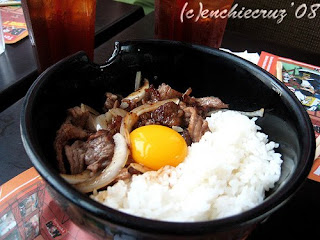Well what do you know, I have an entry for FTF after all. Since I'm sick with colds and flu, I have been craving for all sorts of food and flavors. I ended making some Potato Mojos, popularized by Shakey's Pizza here in the Philippines. My sister taught me how to make Mojos just last week. Her recipe tasted even better than the ones served in the fastfood (sorry!).
 As usual, Potato Mojos are best served with Mayo-garlic sauce. Of course, also made by yours truly. Making Potato Mojos is as easy as counting 1, 2, 3. This is definitely the answer to my cravings. My son will love it too---minus the mayo-garlic :D
As usual, Potato Mojos are best served with Mayo-garlic sauce. Of course, also made by yours truly. Making Potato Mojos is as easy as counting 1, 2, 3. This is definitely the answer to my cravings. My son will love it too---minus the mayo-garlic :D  All you need are some thin slices of potatoes(do not peel), flour, beaten eggs, lots of pepper, salt, oil for deep frying and your favorite dried herbs and powdered flavoring. Procedure: Basic deep frying. What's your food trip this Friday? Share it with at: Food Trip Friday
All you need are some thin slices of potatoes(do not peel), flour, beaten eggs, lots of pepper, salt, oil for deep frying and your favorite dried herbs and powdered flavoring. Procedure: Basic deep frying. What's your food trip this Friday? Share it with at: Food Trip Friday

















 Most of the time we serve Tapa with sunny side up egg. We call the dish TAPSILOG (tapa, with sinangag (fried rice) and egg). It is served during breakfast in restaurants and at our very own homes.
Most of the time we serve Tapa with sunny side up egg. We call the dish TAPSILOG (tapa, with sinangag (fried rice) and egg). It is served during breakfast in restaurants and at our very own homes.















 As I researched on its origins, I found out that there are different kind of Tortas.
As I researched on its origins, I found out that there are different kind of Tortas.






